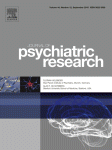
As we’ve noted before, we generally let duplication retractions make their way to the bottom of our to-do pile, since there’s often less of an interesting story behind them, duplication is hardly the worst of publishing sins, and the notices usually tell the story. (These are often referred to — imprecisely — as “self-plagiarism.”)
But that skews what’s represented here — boy, are there a lot of duplication retractions we haven’t covered! — and we might as well be more comprehensive. Plus, our eagle-eyed readers may find issues that we won’t see on a quick scan.
So with this post, we’re inaugurating a new feature here at Retraction Watch, “You’ve been dupe’d.” Every now and then, we’ll gather five of these duplication retractions at a time, and post them so they get into the mix, and into our category listing (see drop-down menu in right-hand column if you haven’t already). Here are the first five: Continue reading You’ve been dupe’d: Catching up on authors who liked their work enough to use it again






